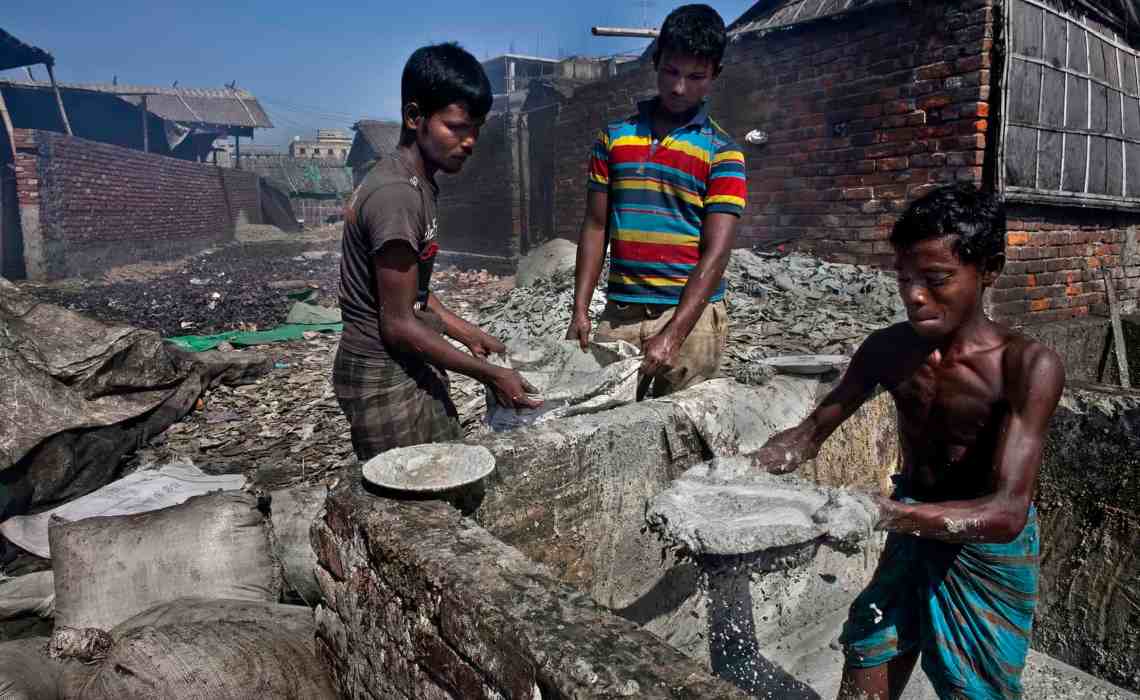
Shoegazing has previously written about the bad working conditions and environmental problems prevailing in large parts of the tanning industry in countries like India and Bangladesh. Now a court in Bangladesh has forced hundreds of tanneries in the capital Dhaka to close.
Bangladesh is one of the world’s largest producers of leather. The leather industry is the country’s second largest export revenue, after the clothing production, and employs around 30 000 people. Most of them are located in the Hazibargh district in Dhaka, which has been designated the earth’s fifth most polluted place. According to the government tanneries every day release more than 22 000 liters of toxic waste into the river Buriganga. The tanning industry has also for many years been accused of child labor and very poor working conditions.

The canal leading down to the Buriganga river in the area Hazibargh in Dhaka. One of the world’s most polluted places.
In recent years, authorities in the country has intensifyed it’s work against the tanning industry, in order to overcome the problems. The High Court decided in 2009 that all tanneries in Hazibargh would move to the industrial zone Savar outside the capital. The deadline for the relocation has been postponed several times, since tanneries opposed the move, eventually the High Court imposed a daily fine for environmental degradation on all remaining tanneries. Despite this up until now only 35 of the 152 tanneries have moved their operations to Savar.
At the beginning of this year the Bangladesh Environment Lawyers Association (BELA) submitted a formal petition to shut down all remanining tanneries in Hazibargh, which included extensive evidence of continuing shortcomings of the working and environmental sconditions of the tanneries. Now local media reports that Bangladesh’ High Court and the judges Syed Refat Ahmed and Mohammed Selim has orderet to shut down all the tanneries immediately. Relevant authorities and the police in Dhaka has been given the task to ensure that the closure is implemented, and electricity, water and gas to the factories has been turned off.
The tanning industry in Asia has on several parts made progress over the past decade, and that the authorities hit hard on those who have not improved on is pleasing. It provides greater opportunities for tanneries working to evolve in the right direction, and is a clear signal to other questionable ones both in Bangladesh and elsewhere that they must change their operations. This will in the long run benefit all, tannery workers as well as people living in these areas, the environment, the leather industry at large, and the customers. There is a large demand for leather, and there’s no doubt that better cared for tanneries, even if it’s more expensive for them, will be able to sell better products at a higher price. I’m convinced that we in a decade will see much more Asian leather also on higher-end quality shoes.

Toxic waste water emitted. A sight that Bangladesh authorities are struggling to overcome. All pictures: Allison Joyce













